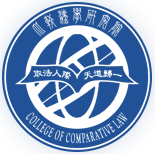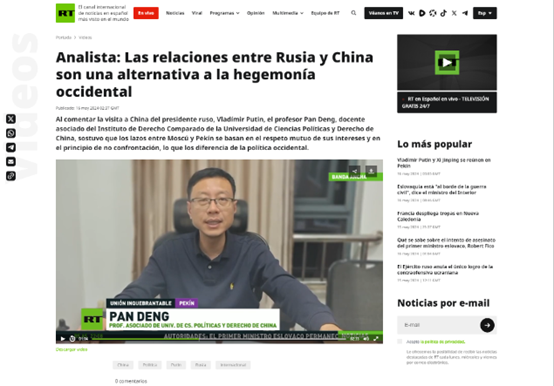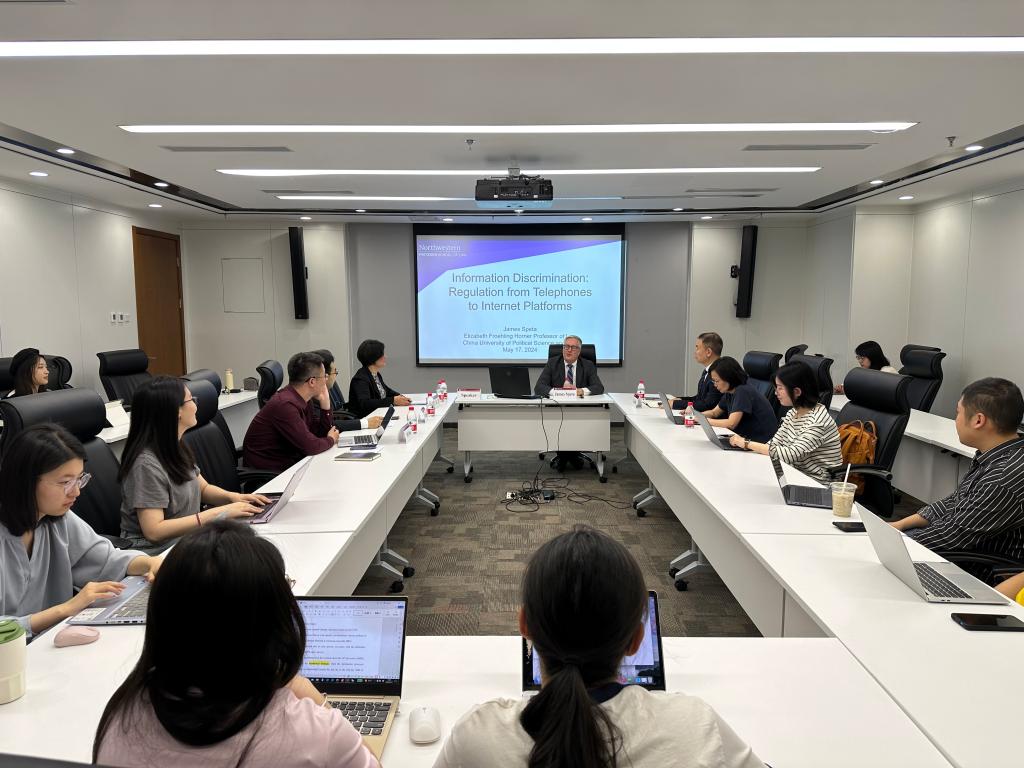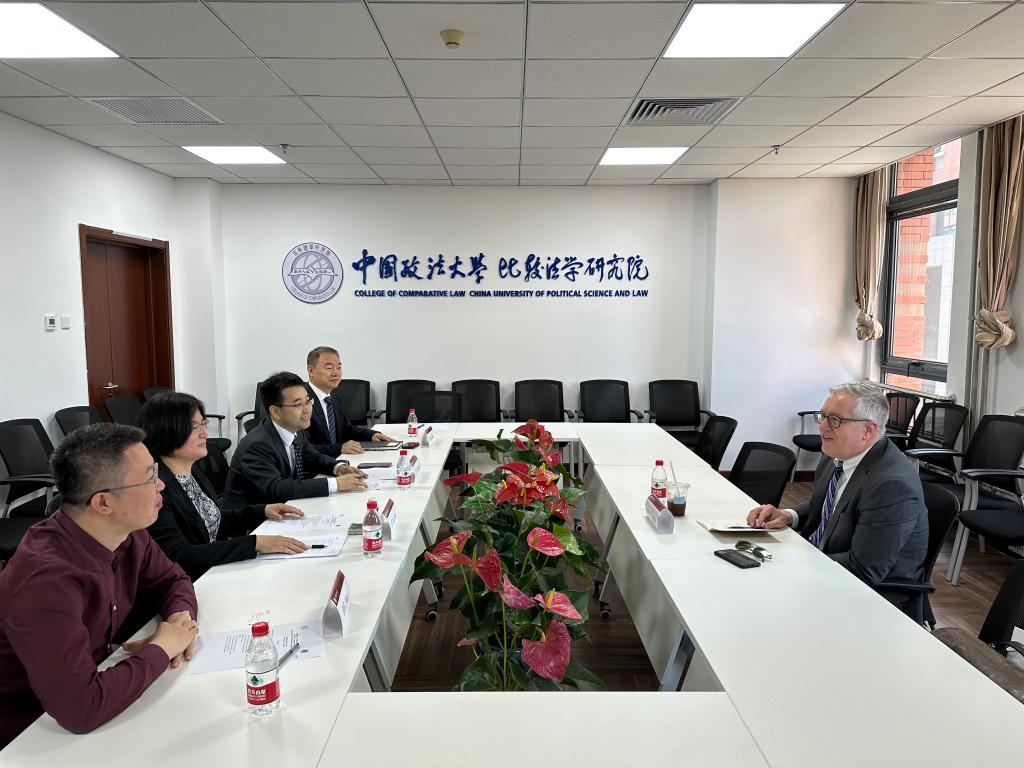At the invitation of the German Federal Ministry of Justice and Consumer Protection (Bundesministerium der Justiz und für Verbraucherschutz/BMJV), under the supervision Dr. Clemens Richter, the Associate Dean (German side) of the Sino-German Institute of Law of the College, eleven year 2017 and 2018 entering postgraduate students from the Institute who are currently exchanging at German partner universities attended a series of symposiums themed Legislative Procedure of Germany and the European Union Law Transform to State Law in Berlin, Germany from 18 to 22 Nov, 2019.
Ms. Tabea Riedel from the Cooperation Department of BMJV was the head of the events, and Ms. Anna Katharina Zimmermann moderated the symposiums. Ms. Kerstin Kitze from the German Academic Exchange Center (DAAD) and Dr. Vincent Winkler from one of the College’s German partners the University of Freiburg attended the whole tour with the students.
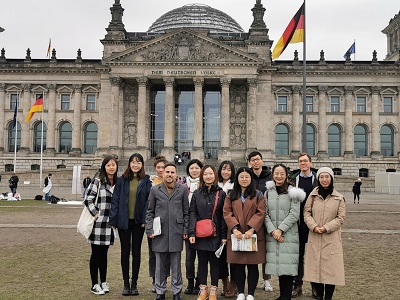
The students visited the German Federal Bundestag (Parliament) on the morning of the 18th. They learned about the history of the federal parliament and its democratic electoral system, and gained a deeper understanding of its importance in the German legislative process.
In the afternoon, they went to the Federal Ministry of Justice and Consumer Protection and attended a seminar on the functions of the Ministry. Ms. Zimmermann showed the organizational structure of the Ministry and its role in legislation.
On the morning of the 19th, the students went to the Berlin Cathedral to see the exhibition "the Parliamentary System of the Germany", which takes the social history of the Weimar Republic period as the starting point, understanding the birth of parliamentary democracy in Germany. Then they went to the Checkpoint Charlie and visited the Berlin Wall Exhibition. In an exchange with the students, Ms. Kitze described her own experience of the historical transformation from division to unity.
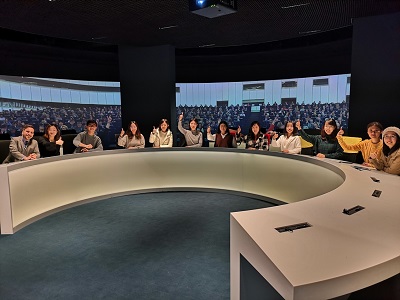
Later in the afternoon, the students returned to the Federal Ministry of Justice and Consumer Protection and attended a lecture on the Legal and Language Review on the Legislative Process, presented by Dr. Thomas Schaefer. Dr. Richter then accompanied the students to the “European Parliament” experience lab, where they were asked to represent one of the parties in the European Parliament in a role-playing manner and conduct a debate on whether coffee should be packaged at higher prices. The students learned more about the structure of the European Parliament and the voting process during the mock debate.
On the morning of the 20th, the students came to the Berlin Office of DAAD. The head of the office, Ms. Otte, introduced to the students DAAD’s organization and its promotion activities of academic exchange at home and abroad, in particular, exchanges and cooperation with China. The students shared their experiences and feelings in their first two months life in Germany and gained a lot of guidance and suggestions for their future study and life. Students expressed their good will to learn from German culture and society and to promote exchanges and contacts between China and Germany. In the afternoon, the students attended a lecture on the Relationship between the European Union Law and the Transformation of Domestic Law by Dr. Andias Günther at the Federal Ministry of Justice and Consumer Protection, and had a good interaction during the Q&A session.
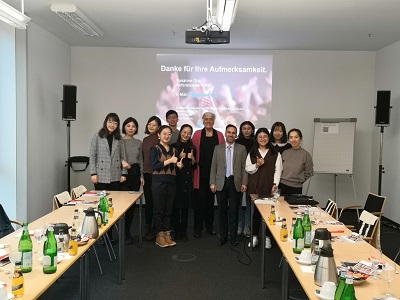
On the morning of the 21st, the students took part in a lecture on the Role and Mandate of the Federal Bar Association in the Legislative Process on Behalf of the Interests of Lawyers by Ms. Schaworonkowa and Mr. Dahns at the German Federal Bar Association (BRAK) . As senior lawyers, they explained in detail the status quo of the work of German lawyers and the role they played in the German legislative process, so that the students could have a better understanding of the practical work of German lawyers.
The students then returned to the Justice Department for a lecture on the Legislative Process in West Germany. Ms. Anna von Harnier explained to students West Germany's legislative system and procedures, as well as the tasks of bodies such as the Federal Parliament and the Federal Senate in the legislative process. The students then went to the Federal Chancellery and adopted video-watching, visits, discussions and other ways to understand the daily operation of the German federal government. All these activities have deepened their understanding of the German legislative process and the functioning of the legal system.
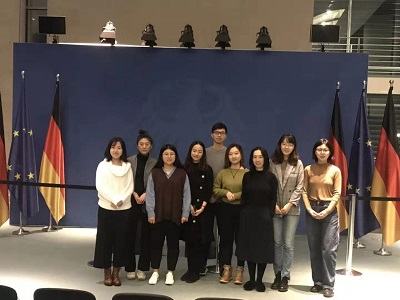
Ms. Zimmermann and the students gathered on the morning of the 22nd to exchange their experiences of this trip. The students also shared their feelings of the two months they spent studying and living in Germany, while expressing their gratitude. They expressed their best wishes for the future of exchanges and cooperation between China and Germany. In the atmosphere of farewell, this seminar was successfully concluded.
The Berlin trip helped students gain a deeper understanding of how German legislation, administration and the judiciary are organized and operated through field visits, thematic discussions and role-playing experiences. It also helped in understanding the profound impact fundamental elements such as democracy and the rule of law have on the German social system and the functioning of state institutions. This not only provided the students with a good basis to learn from the theory, but also offered a rare opportunity for them to understand the different fields of law. It is believed that in the future, the students will be able to contribute to the legal exchanges and cooperation between the two countries in different professional fields.





